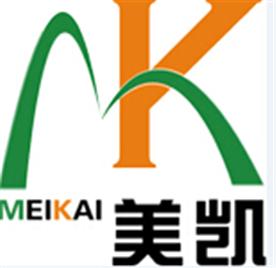b

Thank You!
Your requirement has been sent, we will contact you quickly!
Sent Failed!
Try again!
| Pallets Packing | 20'FCL | 40'FCL | ||
| With | Without | With | Without | |
|
25KG/Paper Bag
|
12 MT
|
15 MT
|
--
|
--
|
First, Chemical name: Hydroxyethyl Cellulose (HEC)
Second, Technical requirements: quality implementation standards
Project | Index |
Exterior | White or light yellow powder solid |
Molar degree of substitution (M.S) | 1.8-2.2 |
Mesh | ≤100 |
Density(g/ml) | 0.35-0.61 |
Moisture(%) | ≤5 |
Transmittance(%) | ≧90 |
PH value | 6.0-8.5 |
Ash content (%) | ≤5 |
Viscosity (mpa.s) 2% 20℃water solution | 5000-100000 |
Three, traits:
This product is a white or slightly yellow odorless, tasteless and easy-flowing powder. The sieving rate of 40 mesh is ≥99%; softening temperature: 135-140°C; apparent density: 0.35-0.61g/ml; decomposition temperature: 205-210°C; The burning speed is slow; equilibrium temperature content: 23℃; 6% at 50%rh, 29% at 84%rh.
It is soluble in cold water and soluble in hot water, but in general, it is insoluble in most organic solvents. In the range of PH value of 2-12, the viscosity change is small, but the viscosity decreases beyond this range.
Four, important properties:
As a non-ionic surfactant, hydroxyethyl cellulose has the following properties in addition to thickening, suspending, bonding, floating, film-forming, dispersing, water-retaining and providing protective colloid functions:
1. HEC can be dissolved in hot or cold water, and will not precipitate at high temperature or boiling, making it have a wide range of solubility and viscosity characteristics, and non-thermal gelation;
2. It is non-ionic and can coexist with a wide range of other water-soluble polymers, surfactants, and salts. It is an excellent colloidal thickener containing high-concentration electrolyte solutions;
3. The water retention capacity is twice as high as that of methyl cellulose, and it has better flow regulation.
4. Compared with the recognized methylcellulose and hydroxypropyl methylcellulose, the dispersion ability of HEC is the worst, but the protective colloid ability is the strongest.
Fifth,Solution and preparation method
1. Add a specified amount of clean water to the container;
2. Add the hydroxyethyl cellulose under low-speed stirring, stir until all the hydroxyethyl cellulose, and stir until all the materials are completely wet;
3. Stir until all the hydroxyethyl cellulose is completely dissolved, then add the other components of the formula and mix well.
Six, application areas
Used as adhesive, surface active agent, colloidal protective agent, dispersant, emulsifier and dispersion stabilizer, etc. It has a wide range of applications in coatings, inks, fibers, dyeing, papermaking, cosmetics, pesticides, mineral processing, oil extraction and medicine.
1. Generally used as thickeners, protective agents, adhesives, stabilizers and additives for preparing emulsions, gels, ointments, lotions, eye clearing agents, suppositories and tablets, and also used as hydrophilic gels and skeletons Materials, preparation of matrix-type sustained-release preparations, and can also be used as stabilizers in food.
2. Used as sizing agent in textile industry, bonding, thickening, emulsifying, stabilizing and other additives in electronics and light industry.
3. It is used as thickener and fluid loss reducer for water-based drilling fluid and completion fluid, and has obvious thickening effect in brine drilling fluid. It can also be used as a fluid loss reducer for oil well cement. It can be cross-linked with multivalent metal ions to form a gel.
4. This product is used for the fracturing method to extract petroleum water-based gel fracturing fluid, polystyrene and polyvinyl chloride and other polymeric dispersants. It can also be used as a latex thickener in the paint industry, humidity-sensitive resistors in the electronics industry, cement anticoagulant and moisture retention agent in the construction industry. Ceramic industry glaze and toothpaste adhesive. It is also widely used in printing and dyeing, textile, papermaking, medicine, hygiene, food, cigarettes, pesticides and fire extinguishing agents.
5. Used as surface active agent, colloid protective agent, emulsion stabilizer for vinyl chloride, vinyl acetate and other emulsions, as well as latex thickener, dispersant, dispersion stabilizer, etc. It is widely used in coatings, fibers, dyeing, papermaking, cosmetics, medicine, pesticides, etc. It also has many uses in oil exploration and machinery industry.
6. Hydroxyethyl cellulose has surface activity, thickening, suspension, adhesion, emulsification, film formation, dispersion, water retention and protection in pharmaceutical solid and liquid preparations.
Seven, packaging:
25 kg/bag, moisture-proof packaging, store in a cool and dry place, open the bag and use it. If there is excess, please seal it to prevent moisture. The recommended service life of the product is 12 months.

